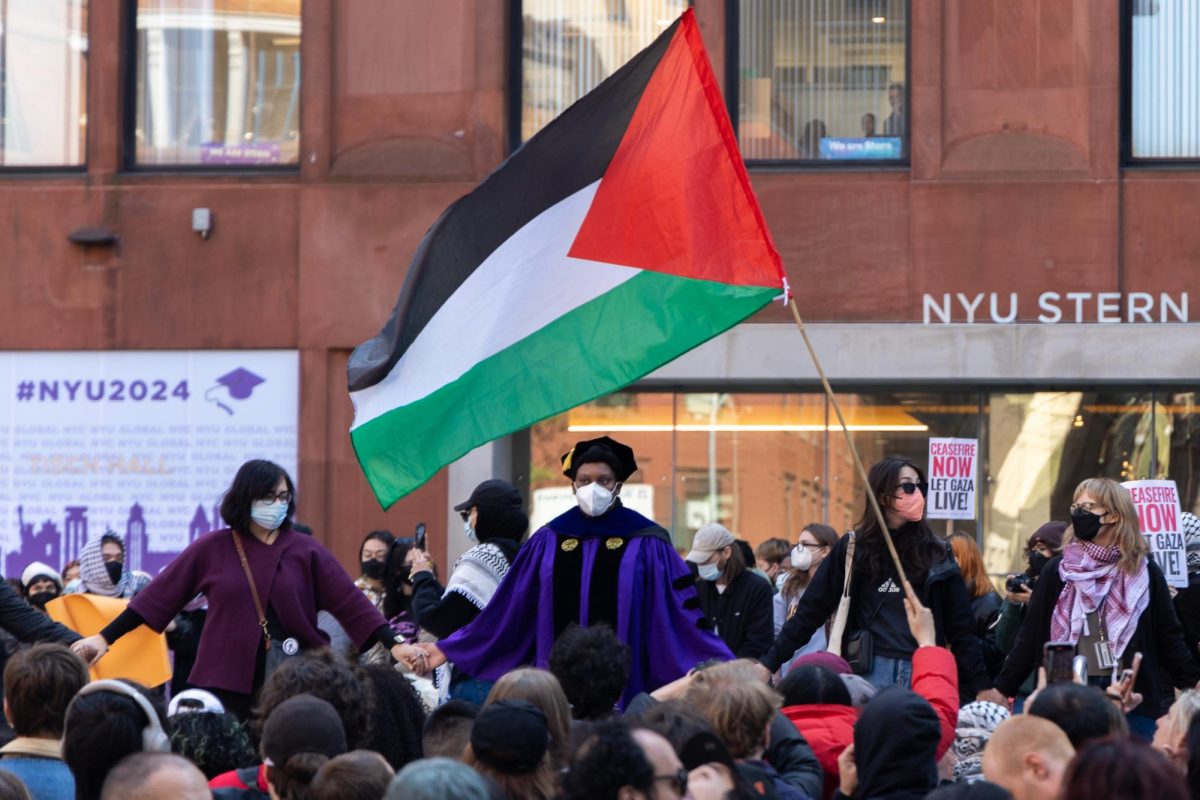Four months ago, a cohort of faculty threatened to halt all administrative work if NYU leadership did not remove police from campus, pardon students facing disciplinary action for their involvement in pro-Palestinian protests and commit to protecting free speech on campus. After a series of deadline extensions, the members are claiming to have been on strike since Labor Day and plan to continue until the university fulfills their demands.
In the group’s pledge — first publicized in May — members of NYU’s Faculty & Staff for Justice in Palestine said they would no longer serve on committees, take part in admissions or complete several other administrative tasks. A representative from FSJP, who requested anonymity due to safety concerns, had said that while the strike will not affect students directly, it will interrupt “a variety of internal and public-facing NYU events.” FSJP would not disclose the number of faculty participating in the strike.
When asked for comment, NYU spokesperson John Beckman told WSN that the university has not experienced “any negative impact on the teaching and research activities of the university” since the strike had allegedly begun on Labor Day. Beckman had called the faculty group’s ultimatum “unproductive.”
“The effectiveness of the job action largely depends on how widespread, disruptive and lasting it is,” David Bloomfield, a legal expert in education leadership, said in an email to WSN. “Also, how easy or difficult it is for NYU to comply with the demands which, in this case, appear substantial.”
The group initially called on the university to meet their demands by Aug. 1 — before extending its deadline to Aug. 15 — and claimed to have begun the strike on Labor Day. Bloomfield said that, because FSJP is not an organized labor union and the strike is considered a political protest, participants are not protected and can be subject to university sanctions based on absences or work stoppages.
“This is not a centralized or highly coordinated action, and so the impact is less discernible than if it were, say, a picket or a grade strike,” the anonymous FSJP member said in a statement to WSN. “It is one of a range of avenues that faculty and staff are pursuing to redeem the university from an administration that has chosen to repress rather than protect the rights of its community.”
The pledge initially circulated weeks after NYU authorized the arrests of dozens of students and faculty at two pro-Palestinian encampments in Gould Plaza and outside the Paulson Center last semester. At more recent protests on and around campus, students have criticized updates to the university’s student conduct guidelines, which now cite “code words, like ‘Zionist,’” as examples of potentially discriminatory speech. At a Sept. 12 protest, students also criticized the New York City Police Department’s presence on campus, specifically during protests and demonstrations — alleging that NYU has requested such involvement.
According to Bloomfield, the NYPD does not have access to private NYU property unless given permission, but does have access to all New York City public property — including streets, sidewalks and parks. He added that NYU may recruit the NYPD on campus, as seen in both Gaza Solidarity Encampments, to lessen its own security expenses.
“NYU may want them there not only as a matter of security but to save money on their own security costs, passing on expense to taxpayers — despite NYU, as a tax exempt entity, not paying city taxes itself,” Bloomfield said.
Chapters of FSJP at other schools, including Columbia University and the University of Michigan, have also held service strikes to call for divestment from companies with ties to Israel and removal of police from campus — none of which have prompted publicized responses from their respective administrations.
Yezen Saadah contributed reporting.
Contact Rory Lustberg at [email protected].
























































































































































